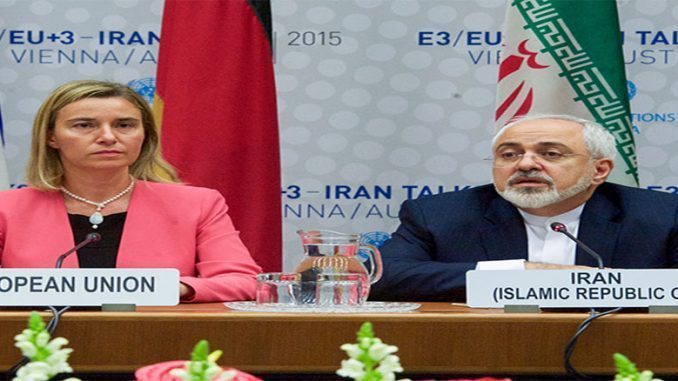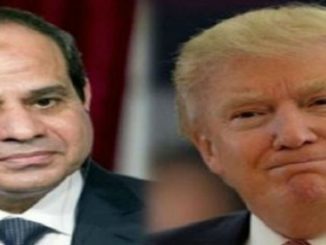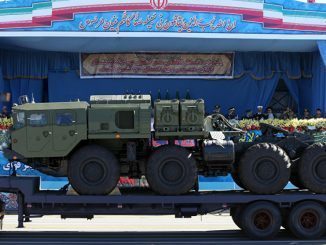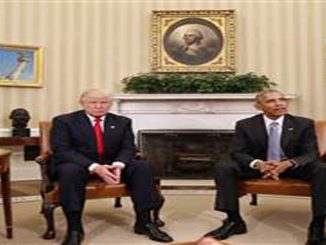
Europe needs to prove it’s ‘willing to defy US’, says Iran’s Foreign Minister Javad Zarif
Europe’s support towards Iran has been only verbal and lacking in any ‘practical measures’, the Iranian foreign minister said. Tags: US, Iran, sanctions, Trump
Europe has not yet shown it is willing to ‘pay the price’ of defying Washington in order to save the nuclear deal, Iran’s foreign minister says.
Mohammad Javad Zarif said (August 20) that European governments had put forward proposals to maintain oil and banking ties with Iran after the second phase of US sanctions return in November.
But he told Iran’s Young Journalist Club website that these measures were more “a statement of their position than practical measures”.
“Although they have moved forward, we believe that Europe is not yet ready to pay the price (of truly defying the US),” Zarif said.
The US reimposed a wave of tought unilateral sanctions against Iran on 7 August, bringing into effect penalties that had been lifted under the 2015 nuclear accord.
The first of two rounds of US sanctions targeted Iran’s access to US banknotes.
Iranians have already seen the effects of the sanctions for months, with Iran’s rial losing half its value since Trump announced in May the US would withdraw from the 2015 accord.
Trump has blasted the hard-fought agreement signed under his predecessor Barack Obam, calling it a “horrible, one-sided deal”.
In an executive order, Trump said the sanctions seek to pile financial pressure on Tehran to force a “comprehensive and lasting solution” to Iranian threats, including its development of missiles and regional “malign” activities.
The second phase of US sanctions will take effect 5 November and will block Iran’s oil sales, which are due to cause more damage. However, several countries including China, India and Turkey have indicated they are not willing to entirely cut their Iranian energy purchases.
Europe has vowed to keep providing Iran with the economic benefits it received from the nuclear deal, but many of its bigger companies have already pulled out of the country for fear of US penalties.
“Iran can respond to Europe’s political will when it is accompanied by practical measures,” said Zarif.
“Europeans say the JCPOA (nuclear deal) is a security achievement for them. Naturally each country must invest and pay the price for its security. We must see them paying this price in the coming months.”
The EU’s diplomatic chief Federica Mogherini said earlier that the bloc, as well as European countries, opposed the US decision and were “determined to protect European economic operators engaged in legitimate business with Iran”.
The impact of the return of sanctions has also ramped up political tensions inside Iran, which has seen days of protests and strikes in multiple towns and cities over water shortages, high prices and wider anger at the government.
Severe reporting restrictions have made it impossible to verify the swirl of claims coming through social media.
Trump has previously said he was open to reaching a more comprehensive deal with Iran “that addresses the full range of the regime’s malign activities, including its ballistic missile program and its support for terrorism”.
“If you’re an enemy and you stab the other person with a knife, and then you say you want negotiations, then the first thing you have to do is remove the knife,” the Iranian leader Hasan Rouhani said in an interview on state television on 6 August.
US’s Trump attacks OPEC, says “They better stop it” amid reactions to Iran sanctions
US President Donald Trump launched an attack on OPEC accusing it of “manipulating” the oil market.
He warned “they better stop it”, after demanding they increase production by 2 million barrels per day to counter the heavy sanctions on Iranian oil exports that Trump himself imposed.
Members of OPEC agreed to pump an additional 1 million barrels of crude daily in June, a move that should help contain prices. Saudi Arabia pledged a “measurable” supply boost, but gave no definite numbers.
Tehran expressed its concern about Saudi Arabia’s offer to pump more oil as US sanctions threaten Iranian sales. Tags: Iran, Saudi Arabia, OPEC, Trump
Member countries should not be allowed to take over another member’s share of oil exports, Iran told OPEC on Sunday, repeating concerns about Saudi Arabia’s offer to increase oil production.
In a meeting with OPEC Secretary-General Mohammad Barkindo, a senior Iranian diplomat urged him to keep the group out of politics.
“No country is allowed to take over the share of other members for production and exports of oil under any circumstance, and the OPEC Ministerial Conference has not issued any licence for such actions,” Kazem Gharibabadi, the permanent envoy was reported as saying by Iran’s news agency Shana.
Iran’s oil minister had previously warned its Saudi counterpart the OPEC supply pact from last year does not give member countries the right to raise oil production above their targets.
While no country was named, OPEC’s biggest producer is Saudi Arabia, and they reported that the kingdom had pumped 10.489 million barrels per day (bpd) in June, up 459,000 from May and above its target of just over 10 million bpd.
“Iran believes that OPEC should strongly support its members at this stage and stop the plots of countries trying to politicise this organisation,” Gharibabadi said.
Trump’s motive behind lashing out at OPEC is probably linked to the fact that summer months in the US usually sees increased demand for oil, pushing up the price of gasoline ahead of the mid-term elections this year.



